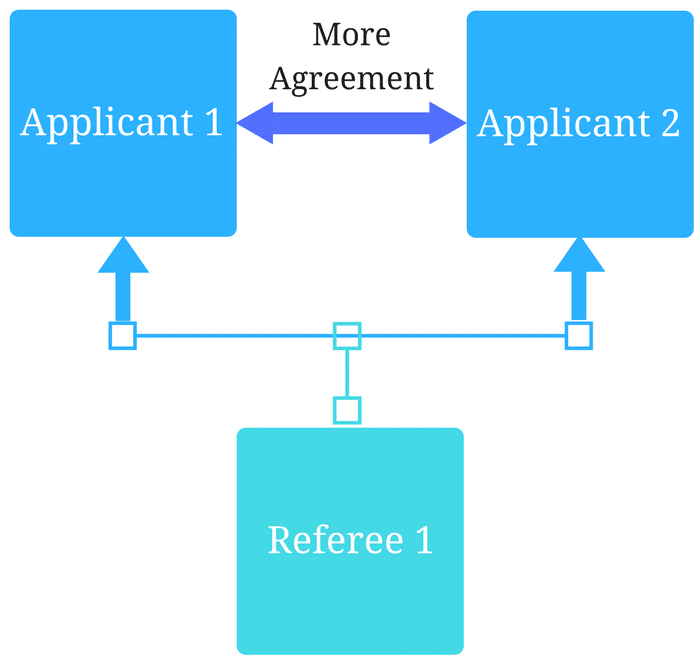Q&A with Dr. Kelly Dore: A Holistic Approach to Engineering Admissions with Casper

December 12, 2023
Engineering programs have traditionally relied solely on grades alone or in combination with other academic scores to spot the next Nikola Tesla or Grace Hopper. But measuring just by academics is like snapping a pixelated selfie: you get the idea, but miss the details.
Enter Casper by Acuity Insights. Initially developed to identify holistically strong applicants to medical students – finding applicants who are academically strong and have key traits like teamwork, resilience, and top-notch communication. However, over the years Casper has demonstrated relevance far beyond medicine – consider disciplines like engineering education, future engineers have to solve the complex problems of tomorrow – requiring more than just book smarts.
Dr. Kelly Dore, the Co-Founder and VP, Science & Innovation at Acuity Insights and Casper’s co-creator sat down for a Q&A on holistic admissions and the future of engineering education. Get ready to dive in!
What is holistic admissions, and what does holistic admissions look like in engineering education?
Traditional academic metrics like GPA, SAT, and ACT don’t tell the whole story of an applicant’s abilities or potential. Holistic admissions in engineering go beyond grades, emphasizing the individual’s ability to work in teams, communicate ideas, and understand various perspectives. This approach recognizes that successful engineers solve global problems, not just ones specific to their own demographic. Engineering education needs to evolve and gather more comprehensive information about applicants, without overburdening programs or the applicants themselves.
In the context of higher education admissions, using a holistic approach is important because it helps to:
- Attract More Applicants: Some institutions want to increase the number of people applying to their programs. A holistic approach helps them find more applicants who have the potential to succeed in their programs because it considers a wide range of factors beyond just grades or test scores.
- Select the Right Candidates: Other programs need to carefully choose candidates who have all the necessary qualities to succeed in fields like engineering. A holistic approach helps them evaluate applicants thoroughly by looking at various aspects of their qualifications and abilities.
How can Casper help engineering schools achieve a more varied cohort of students?
Implementing Casper early in the evaluation process can help support bringing in a more varied cohort of students by:
- Offering a fairer way of assessing applicants than relying on traditional academic metrics alone.
- Casper has shown to reduce demographic differences by up to 50% when compared to knowledge-based tests.
- By integrating Casper into their admissions process, engineering programs can communicate to applicants that they value a blend of academic prowess and soft skills. This holistic approach not only emphasizes the program’s commitment to recognizing the full potential of each applicant but also underscores its dedication to long-term success.
How can Casper support bringing more women into the engineering workforce?
Engineers Canada, the Canadian regulatory body for the profession of engineering, has established a 30 by 30 mandate. The national objective aims to increase the percentage of newly licensed engineers who are women to 30% by the year 2030.
The American Society for Engineering Education (ASEE)’s Women in Engineering Division (WIED) focuses on promoting the involvement of women in engineering education and the engineering profession. Their efforts include enhancing the readiness, recruitment, and retention of female students in STEM fields.
Where does Casper come in?
- Only 22% of all undergraduate engineering grads are female in both Canada and the U.S. When used during screening, early in the admissions process, Casper can support your efforts to cultivating a more fair process for all students
- Casper shows reduced group-based disparities when compared to knowledge-based exams.*
- Previous research indicates that female applicants tend to score higher on the Casper test than their male counterparts.*
Why should an engineering school focus on discovering applicants with soft skills?
Engineering schools can stand out in the fierce competition for top students by looking beyond just academics. While strong grades are essential for navigating course requirements, skills like communication, teamwork, and resilience are equally critical for success in and beyond the program. By considering both academic and personal attributes, schools can pinpoint students poised to thrive in all areas, from academic performance, to co-op placements, and in the workforce.
Moreover, it’s crucial for engineering programs to champion fairness.
- Traditional metrics, such as GPA and standardized tests like the ACT/ SAT or GRE, often potentially sideline those from various backgrounds, including first-generation university-goers.
- Casper, on the other hand, supports a more fair and holistic admissions approach, leveling the playing field for women, underrepresented groups, and those from lower economic bands.
- By combining academic metrics with tools like Casper, engineering programs not only gain a fuller understanding of a candidate’s potential but also mitigate harms from conventional measures, creating an admissions process that widens pathways for all.
What is Casper and how can Engineering schools use it in their admissions process?
A situational judgment test (SJT) like Casper ensures that we are recognizing an applicant’s unique life experiences and viewpoints when evaluating their enduring skills for engineering schools. We aim to gauge their potential reactions and actions in intricate situations to better comprehend their inherent strengths. Boasting a robust foundation of nearly two decades of research, Casper has been a trusted tool for almost 15 years.
Here’s what Casper offers for engineering schools:
- It measures how applicants fare compared to their peers in the application process.
- The test identifies candidates showcasing robust personal and professional qualities.
- It prompts applicants to respond to open-ended queries, drawing from their personal experiences to tackle intricate issues.
- Casper’s evaluations are undertaken by expert human raters who’ve undergone rigorous training.
- The test encompasses 14 distinct scenarios.
- Casper helps to identify students who may require coaching when it comes to personal and professional skills. Casper can be used to take a proactive approach to student success, reduce retention, and offer insight into who may need extra support in their first year of their program and beyond.
While Casper’s journey commenced in medical education, emphasizing the need for doctors who blend academic prowess with commendable interpersonal skills, its significance has expanded. Numerous fields are recognizing that mere academic brilliance isn’t enough; students must also possess personal and professional competencies to navigate ever-evolving real-world hurdles. Whether it’s nursing, teaching, or engineering, Casper is tailored to ensure it assesses behaviors pivotal to success in each domain. Data indicates that candidates boasting these strong attributes consistently demonstrate superior job performance, academic triumphs, and positive faculty evaluations in their engineering pursuits.
Is the Casper test specifically made for engineering education?
One of the standout features of Casper is its universal applicability. Designed to be pertinent to all applicants, the test doesn’t hinge on specialized professional knowledge. For instance, in medicine, it’s tailored to present generic scenarios suitable for everyone.
- Had the test been crafted around profession-specific situations, it could have inadvertently favored those with inside connections or familiarity with the profession.
- Casper’s design ensures a level playing field for all, whether they’re wrapping up high school or completing their BA.
- Casper serves up generic scenarios that resonate universally.
- While there aren’t scenarios crafted explicitly for engineering, it’s important to note that engineering applicants are still assessed in comparison to their peers.
Why should engineering schools be implementing Casper in their admissions process?
Traditional methods of evaluating an applicant’s non-academic skills or lived experiences, such as personal statements, essays and reference letters, are riddled with problems and limitations.
- Personal statements or essays, which often take weeks to perfect with input from many, end up reflecting the collective input rather than the individual’s genuine perspective.
- This method is even more problematic when insiders guide the content.
- Many such statements go unread, leading to selections based on limited metrics, narrowing entry avenues.
- Similarly, reference letters are based on connections and are time-consuming to review, often offering limited genuine insight and focusing more on red flags or notable names.
- There’s a pressing need to adopt reliable tools that accurately forecast an applicant’s future performance in relevant areas.
What advice would you give to an engineering admissions leader who wants to incorporate a more holistic approach to admissions?
When crafting a comprehensive admissions process for engineering, it’s crucial to base decisions on reliable data points that can forecast a candidate’s all-around success throughout the program. This involves:
- Identifying the traits that correlate with success among your engineering students and graduates.
- Intentionally meld academic factors (such as GPA or standardized tests) with non-academic ones (like Casper).
- Incorporate both academic and non-academic factors early in the evaluation phase.
Solely focusing on one facet risks narrowing down candidates based on just a fragment of their potential. By embracing this holistic approach, you pave the way for a broader spectrum of deserving engineering students, ensuring fairness and inclusivity.
Find out more about Casper for Engineering Education or book a demo.
Related Articles

How interviews could be misleading your admissions...
Most schools consider the interview an important portion of their admissions process, hence a considerable…
Reference letters in academic admissions: useful o...
Because of the lack of innovation, there are often few opportunities to examine current legacy…
